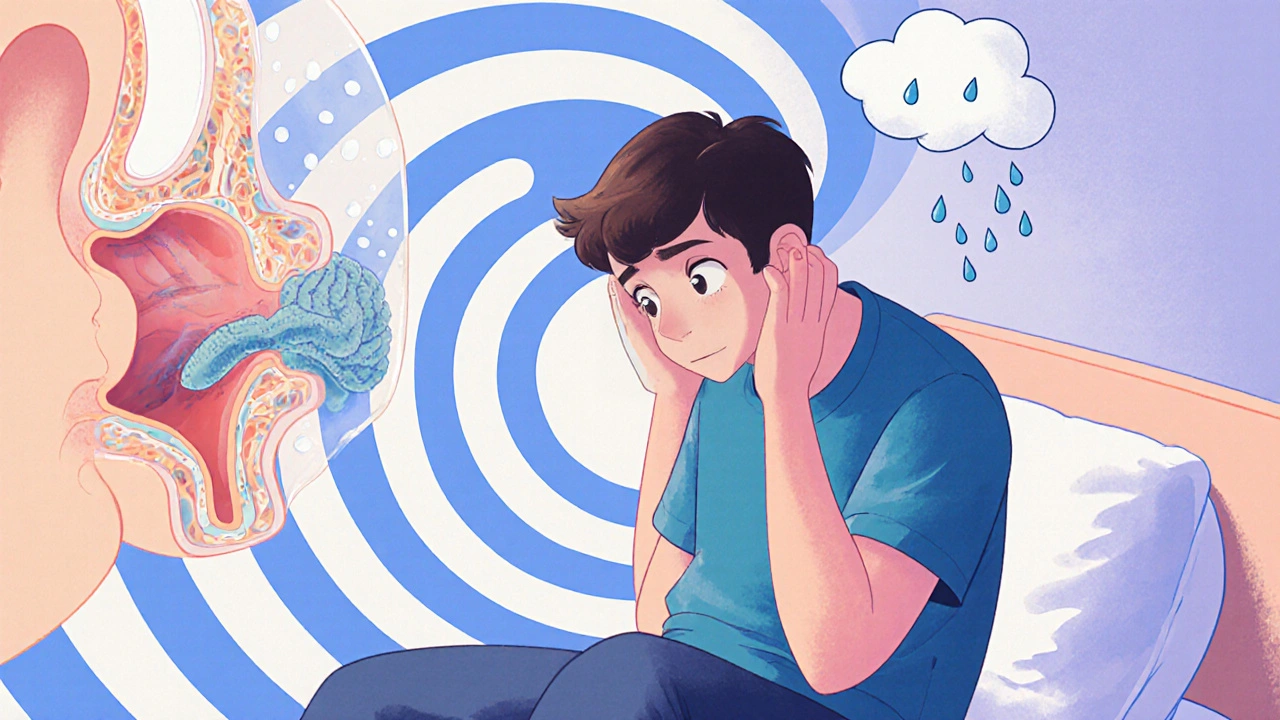Vertigo
When dealing with vertigo, a sensation of spinning or loss of balance caused by disturbances in the inner ear or brain. Also known as dizziness, it can strike anyone at any age. Vertigo often stems from inner‑ear problems, medication side effects, or even anxiety spikes. For example, Benign Paroxysmal Positional Vertigo, a common inner‑ear disorder that triggers brief episodes of spinning when the head moves accounts for many sudden attacks. Another key player is Vestibular Rehabilitation Therapy, a set of exercises designed to improve balance and reduce dizziness, which many patients find life‑changing. Understanding these core entities helps you see why a simple head turn can feel like the world is spinning.
What Triggers Vertigo?
Inner‑ear inflammation, like that seen in Meniere’s disease, creates fluid pressure that confuses the balance system. Viral infections can also irritate the vestibular nerve, leading to sudden spins. Medications such as certain antibiotics or anti‑depressants sometimes list dizziness as a side effect, so a new prescription might be a hidden cause. Stress and anxiety are surprise contributors; when your nervous system is on edge, it can amplify the feeling of unsteadiness. Even muscle stiffness after a sports injury can affect neck posture, which in turn influences inner‑ear signals. These connections show how vertigo sits at the crossroads of ear health, medication safety, and mental well‑being.
If you’re wondering how to tackle the problem, the answer is usually a mix of approaches. A doctor may run a simple Dix‑Hallpike maneuver to pinpoint BPPV, then teach you the Epley repositioning moves that reset calcium crystals in the ear. When chronic issues like Meniere’s show up, dietary salt cuts fluid buildup, while diuretics can help control pressure. For anxiety‑linked spins, breathing exercises and short‑term counseling often lower the brain’s over‑reaction. Meanwhile, a guided vestibular rehab program retrains the brain to rely on visual cues and proprioception instead of faulty ear signals. By matching the right treatment to the underlying trigger, most people see a steady drop in episodes and can get back to everyday activities without fearing the next spin.
Below you’ll find a curated list of articles that dive deeper into each of these angles—whether you need a quick fix for a sudden episode, want to understand medication impacts, or are looking for long‑term lifestyle tweaks. Use the resources to pinpoint what’s driving your vertigo and choose the most effective next step.
Vertigo and Depression: How Chronic Dizziness Impacts Mental Health
Explore how chronic dizziness triggers depression, the physiological links, risk factors, diagnosis, and treatment options that address both vertigo and mental health.
